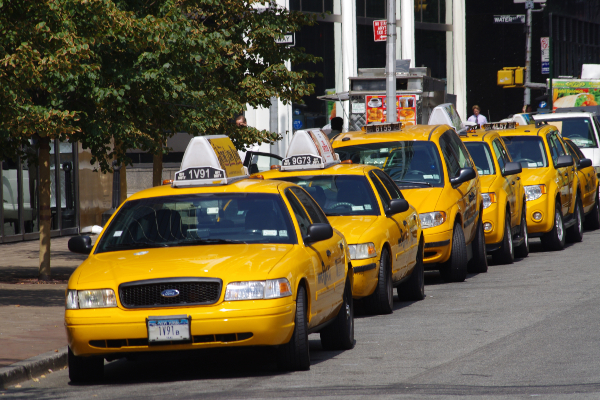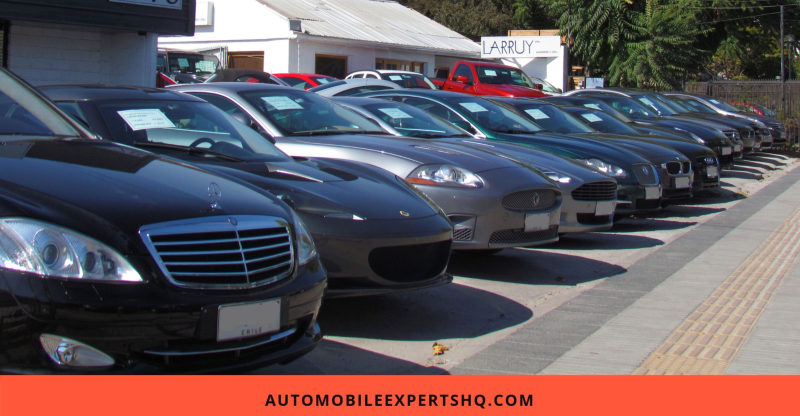Millennials Less Likely To Buy A Car: What It Really Means
I am a millennial who does own a car. However, a good portion of my other millennial friends neither has one nor plans on getting one anytime soon. This is a trend that a keen eye will notice around the world. And the reason people are giving attention to this trend is that it affects the car industry immensely.
Us millennials account for a major portion of the global consumer population. And soon we will be the dominant share of the global consumer economy. This makes it all the more important to pay heed to all the reasons that make us skip going for our own car.
Reasons Millennials Are Less Likely To Buy A Car
A millennial goes for an innovative, morally-driven and practical purchase.
And the traditional milestone of owning a car does not mean much to us millennials. As opposed to popular belief, it is not because we are financially not as strong as the previous generation. Or that we do not put much emphasis on materialistic things.
We just don’t have the same priorities as that of the previous generations. And this has disrupted not just the automobile sector but every other industry aimed at the average consumer. Let us take a look at the main reasons that make us skip the car purchase altogether:
Waiting for A Better Technology
The environmentally conscious and tech-savvy millennials are not happy settling for the current best. They are looking forward to the eco-friendly self-driving cars that will reinvent the very basics of owning a car. We value our time the most. And multitasking happens to be our favorite operating mode.
So we cannot wait to be able to work, nap or anything else that we please while cruising on our self-driving cars to the desired destination. And going by the recent innovations, that future is closer than it seems. Of course, it will not be cheap but that never stops us from going for our favorite products.
Whether it is the steeply overpriced smartphones or the limited edition sneakers, we millennials make sure that they get sold out within minutes of their official launch. And the same will be the case with the first commercially available edition of driverless cars that are easy on the environment.
Riding the ‘Sharing Economy’ Wave
The sentimental bubble around buying your first car has burst for the millennial generation. In fact, it was never there, to begin with. They see a car for what it actually is – a high priced liability that keeps on depreciating with time. Then there are the regular maintenance fees too.
So they smartly go for the sharing option. Today, you can get a shared ride on the cab. Or, better yet, just rent a car on sharing basis with your friends and family. This way, you pay for just the value that you derive from this investment.

The additional bonus of reducing the air pollution by this sharing efforts makes all the more sense to the millennials. As great as a decision as it is, the car industry is definitely losing out on a good chunk of their prospective customers this way.
The Millennial Lifestyle Preferences
Millennials try to emulate the Instagram quotes as their lifestyle. So they actually do ‘value experiences over objects’ and that reflects in their buying preferences too. Staying connected at all times is almost a necessity rather than an urge for them.
Buying their own cars does not even come in their top 50 goals of the year. They value their laptops and smartphones way more than they are ever going to value the traditional cars as their parents did. Even when they pick to live in the bustling cities over the suburbs, they are unconsciously making a choice.
A choice that they might not have a proper garage or parking space. That their might not be an easily drivable path to their home and their nearby favorite places. And that seems to be fine with them as long as they can hail a cab anytime or walk to their favorite locations with ease.
No Money to Splurge
For an average millennial, the term ‘splurge’ does not exist anymore. The student loan debt, credit card debts, the all-time high inflation is enough to keep them and their budget guessing at all times. And then there is the recession. The word that is capable of putting millions out of job overnight and leave the rest shuddering.
The after effects of such vulnerable economic conditions seriously affected the buying patterns. Today the millennial may not care much for their own car. But this shift was not sudden. In an economy that is fighting one crisis after the other, people tend to gravitate towards the more practical and affordable options.
Millennials were not lucky enough to get constant access to cheap gasoline. By the time they were old enough to think about getting their driving license, owning a car somehow turned into a rich man’s game. The insurance, initial hefty investment, and high maintenance fees turned the entire millennial generation away from the costs and endeavors that are required to be made for buying a car.
Commuting Via Cars Today is Ruthless
Half a century ago, commuting via car was no less than an adventure. Not just the thrill of the then new and innovative car technology but the charm of the clutter free road made the entire experience more than pleasant.
But today, car commute translates to getting stuck in the jam for hours with nothing but the annoying screaming match between car horns. And that is how the millennials have seen the car commute since they came into this world.

The mass purchase of various car models and road networks sprawled over everywhere has made car jam a possibility anywhere. As long as you are in a car, you can be assured of being stuck in that mind-numbing car clutter as high as the serene mountains or alongside the riverbanks.
Living Life at Ease
Millennials are not much into the whole rite of passage thing. They prefer taking their sweet time to come up with their own rite of passage and further finetune it without any rush. As opposed to the previous generation, they have a leisurely and innovative take on life.
This translates to shopping, traveling and even starting a family, if ever, at their own pace. The online shopping portals have made it so much easy for the millennials that they can just continue enjoying their lifestyle without ever having to step out for groceries or a fresh clean shirt.
This eliminates the need of cars to visit the shopping center and carry all the essentials with you in your 4-wheeler. With no kids, you don’t absolutely have to buy that modest looking minivan and become the unofficial chauffeur for the kids of the entire block. The possibilities are limitless once a millennial decides to just roll with it.
Car Technology Needs to Catch Up
The TVs, mobiles and video games transformed to flatscreens, smartphones, and highly immersive gaming units to keep up with the changing times. And they have reaped the rewards for the same. These amenities are still as popular and indispensable for the millennials as it was for their parents.
But the cars you see and drive today have not upgraded themselves as efficiently as they should have. Aside from a few exterior and technological modifications, you don’t get the same level of connectivity and innovative breakthrough in this industry as the millennial generation requires.
The millennials are able to stay connected and multitask with almost all the gadgets that they presently own. But in a car, they are required to disconnect from everything and keep their focus on the road as the traffic decides to slither slower than a snail. It hardly passes for a sales pitch, let alone an appealing one.
These were few of the many reasons that the millennials are giving the cars a pass. Let us find out the visible impact of this trend on the future economy.
Effects On Overall Future Economy
The millennials have become the low-spending and no-risk takers in their lifestyle. This means that the future economy will surely see a significant decline in the car, house and other high investment economies. Unless they find a way to keep the millennials interested in better technology or offer, the spending on high investment items such as the car is likely to diminish.
Oil Producing Countries in Jeopardy
The cars that run on oil have become more of an outdated accessory. The people who already own it have no other option but to continue begrudgingly drive it. But the new sales numbers are quite disappointing. Everyone is waiting for the all-electric, self-driving cars that will change our lives and the economy as we know it.
According to the Stanford economist Tony Seba, this will cause a geopolitical shift in the power dynamics across the world. Russia, Saudi Arabia, Nigeria, and Venezuela will be among the worst hit victims of this shift. This phenomenon will gradually start to appear since early 2020.

The new in-demand product for the car industry will be cadmium, cobalt, and nickel among others. These elements are used in car battery development process. But they still won’t hold the same importance as the oil used to for conventional automobiles.
Intelligent Investors Will Have a Field Day
The electric cars don’t need as much labor or raw material as the oil-run vehicles consume. And with the right planning, most of these jobs can be robotized completely within a decade or so. For a smart investor, this will open numerous business opportunities.
They can maximize their profit to a great deal with the initial surge in sales, especially among millennial consumers. As the trend catches up, the electric cars can compete or even speed past the latest gadgets in their popularity among the millennials.
This will make it possible to create that right balance in the supply and demand equation without overwhelming the target audience with useless options. The global market for the electric self-driving vehicles is already showing impressive numbers and it is just going to soar in near future.
The Change will Not Be Sudden
As opposed to the developed nations, the developing nations still rely upon and will continue to operate with the oil-run vehicles even in the distant future. It will take a good amount of time for the electric vehicles to become a necessity rather than an accessory everywhere.
Most of the thriving organizations of the developed nations depend upon the affordable and skilled labor of the developing nations. This means that a major section of the global proceedings will still be carried out via the traditional vehicles.
But, the end of the oil-run vehicles is definitely on the horizon. The present age of connectivity and globalization will definitely do its share in making electric cars the next big global sensation. And the car industry will finally enter its economically and environmentally responsible era.
Conclusion
Cars and road networks are the lifelines of the modern urban utopia. But the way it has been utilized for generations definitely requires an upgrade. The electric self-driving cars are just around the corner and ready to match the unique millennial outlook in its operation.
Do you own a car? Are you planning to buy a new one soon? Tell us what motivates you to buy or not buy your own car. Forward this article to your friends and family online and start an intellectual conversation with them. Comment below to let us know what is your take on this article.








